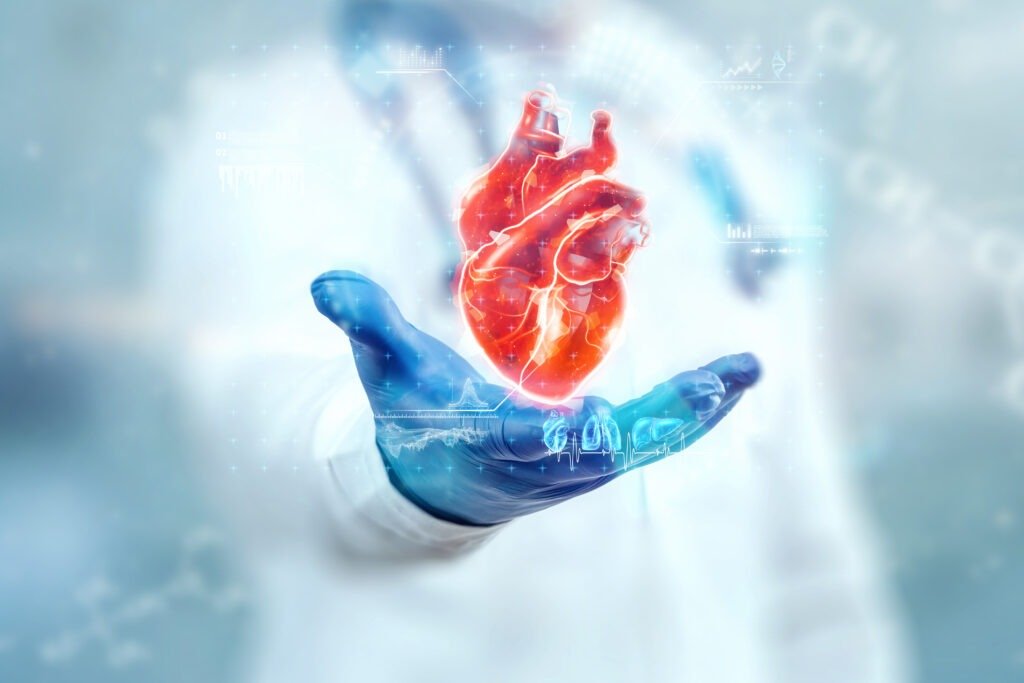- Home
- Departments
- Cardiology

Cardiology
we are dedicated to your heart’s health and well-being. Our team of highly skilled cardiologists and healthcare professionals is committed to providing top-notch cardiac care, tailored to your individual needs.
- you require preventive measures, diagnostic evaluations, or advanced treatments, we are here to support you on your journey to a healthier heart.
- our team of dedicated professionals, including experienced cardiologists, skilled nurses, and allied health experts, specializes in managing patients with a wide spectrum of cardiac issues
Overview
A cardiologist is a highly trained medical doctor with specialized expertise in diagnosing, treating, and managing a wide range of cardiovascular disorders. Just as neurologists focus on brain and nervous system conditions, cardiologists dedicate their practice to ensuring the health and well-being of your heart and circulatory system.
Our cardiologists are leaders in the field, with extensive training and experience in diagnosing and treating various heart conditions. Whether you’re seeking preventive care, dealing with a heart condition, or requiring specialized interventions, our experts are here to guide you every step of the way.Our team of cardiac nurses is not only highly trained but also deeply compassionate. They provide continuous monitoring, administer medications, and offer essential support throughout your cardiac journey, ensuring you’re in safe and caring hands.
Symptoms & Diagnosis
Persistent chest discomfort, pressure, squeezing, or pain can indicate various heart conditions, such as angina or a heart attack.Difficulty breathing or sudden breathlessness may result from heart failure, coronary artery disease, or other cardiac issues.Irregular or rapid heartbeats can be linked to arrhythmias or other heart electrical abnormalities.Unexplained fatigue or extreme tiredness may be a symptom of heart disease, especially in women.Swelling in the legs, ankles, or feet (edema) can occur with heart failure or other cardiovascular problems.Episodes of dizziness, lightheadedness, or fainting could indicate issues with heart rhythm or blood flow.
Your cardiologist will gather a comprehensive medical history, including symptoms, risk factors, and family heart disease history. A thorough physical examination includes blood pressure, heart rate assessment, and listening for any abnormal heart sounds or murmurs. An Electrocardiogram (ECG or EKG) records your heart’s electrical activity, aiding in identifying irregular rhythms. Various imaging techniques like echocardiography, stress tests, CT scans, or MRI scans visualize the heart’s structure and function. Holter Monitor or Event Recorder devices track heart rhythms over time for diagnosing intermittent symptoms. Cardiac Catheterization involves catheter insertion to directly assess coronary arteries and blood flow.
- Electrocardiogram (ECG or EKG)
- Echocardiography (Echo)
- CT Angiography (CTA)
- Transesophageal Echocardiogram (TEE)
- Stress Testing
- Cardiac Catheterization
- Cardiac MRI
- Holter Monitor
Meet Our Doctors
Our administration and support staff all have exceptional people skills and trained to assist you with all medical enquiries. Doctors will be available from 8 am : 12 am , kindly call to confirm your Appointment.
Emergency Cases
Please feel welcome to contact our friendly reception staff with any general or medical enquiry call us.




